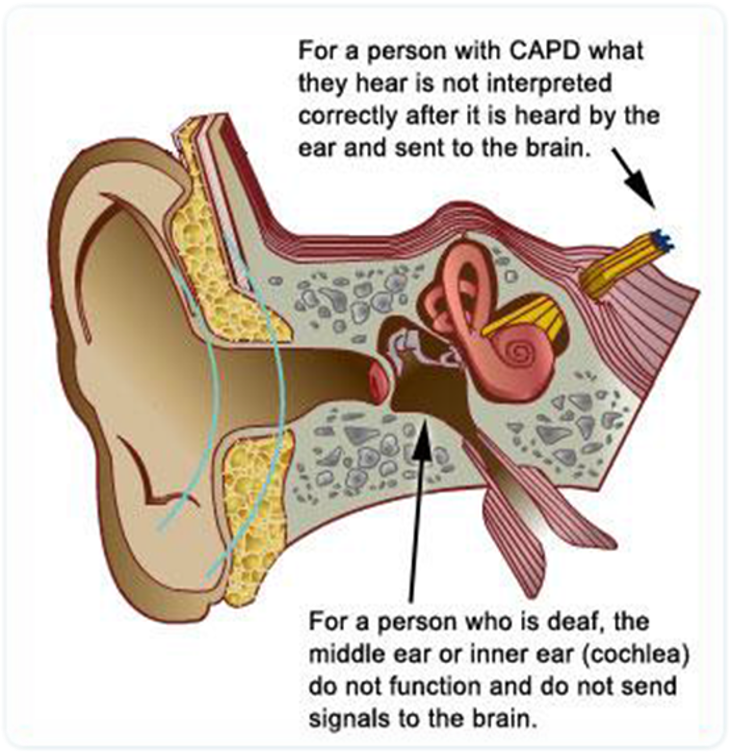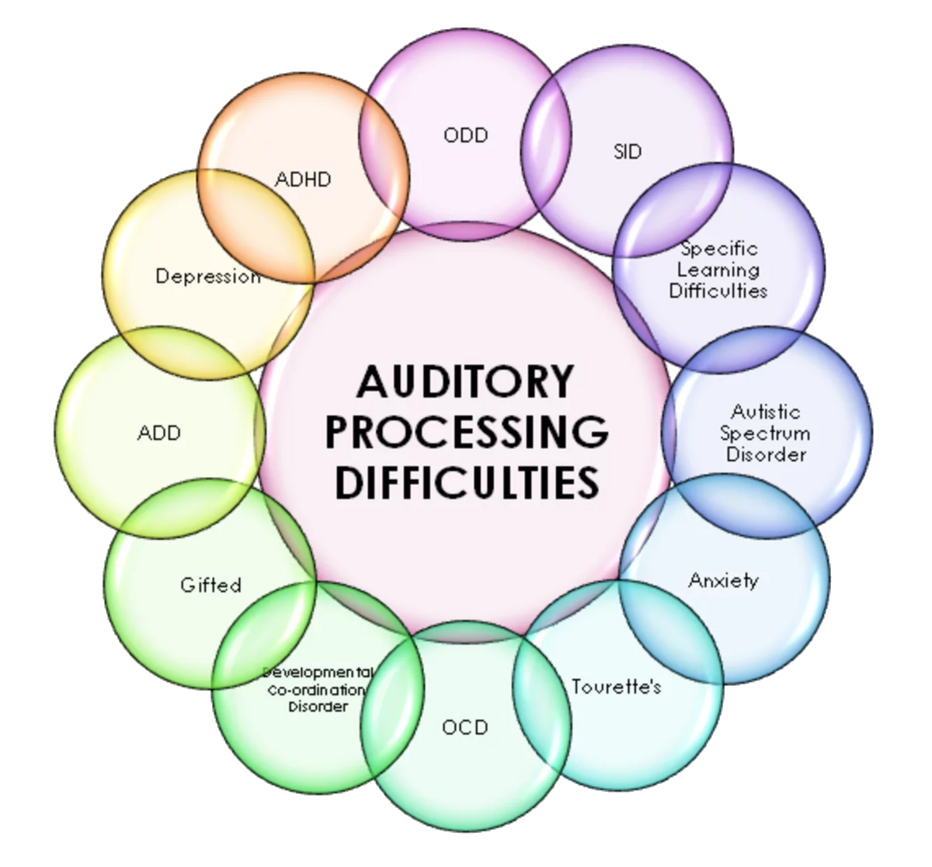Understanding CAPD
Central Auditory Processing Disorder (CAPD) is a hearing deficiency where individuals can hear sounds but struggle to process and interpret them correctly. Unlike deafness, where the ear does not deliver sound to the brain, CAPD occurs when the brain fails to translate the sounds delivered by the ear properly, resulting in garbled or misunderstood messages.
Key Facts:
- People with CAPD have normal hearing and are not considered hearing impaired.
- The problem lies in how the brain processes the sounds it receives, which is why it is called a “processing disorder.
How CAPD Affects Hearing
- Normal Hearing: Sound travels to the inner ear, which delivers it to the brain for accurate translation.
- With CAPD: The inner ear functions normally, but the brain misinterprets the sound, leading to confusion and difficulty understanding.
CAPD particularly impacts an individual’s ability to focus in noisy environments, such as classrooms or busy public spaces. Everyday sounds—like pencils tapping or birds chirping—can overwhelm the central auditory nervous system, making it difficult to concentrate and understand speech.

Symptoms of CAPD
CAPD symptoms can range from mild to severe and often vary by individual. Common signs include:
- Difficulty distinguishing between similar sounds (e.g., “coat” vs. “boat”).
- Trouble following directions, especially multi-step instructions.
- Sensitivity to loud or sudden noises.
- Challenges with reading, spelling, or verbal math problems.
- Difficulty focusing in noisy environments.
- Mishearing words or phrases, leading to misunderstandings.
- Forgetfulness, disorganization, or confusion in noisy settings.
Questions to Ask Yourself:
- Is your child unusually bothered by noise?
- Does their behavior improve in quieter environments?
- Are conversations or following instructions challenging?

Behaviors Reported by CAPD Patients
A sampling of clients diagnosed with CAPD by the Able Kids Foundation highlights common behaviors:
- Sensitivity to sounds and being easily distracted.
- Mispronouncing words or confusing similar-sounding ones.
- Experiencing frustration, anxiety, or forgetfulness.
- Difficulty following directions or appearing confused in noisy places.
- Weak grasp of phonics and trouble with verbal communication.
Diagnosing CAPD
If you suspect CAPD in your child, consult an audiologist (hearing specialist). Audiologists are the only professionals qualified to diagnose CAPD. They evaluate several key areas:
- Auditory Figure-Ground Problems: Difficulty focusing on sounds when there is background noise.
- Auditory Memory Problems: Trouble remembering information like directions or study materials.
- Auditory Discrimination Problems: Difficulty distinguishing between similar words or sounds.
- Auditory Attention Problems: Inability to focus on auditory tasks for extended periods.
- Auditory Cohesion Problems: Challenges with complex listening tasks, such as understanding riddles or verbal math problems.
Since most diagnostic tests require specific language and cognitive skills, children are often not diagnosed until they are 7 or older.
Managing CAPD
Early diagnosis and intervention can significantly improve outcomes for individuals with CAPD. Recommended approaches include:
- Speech and Language Therapy: Enhances auditory processing skills and comprehension.
- Audiologist Evaluations: Provides tailored recommendations for managing CAPD.
- Supportive Environments: Structured, quiet settings reduce distractions.
- Assistive Technology: Tools like hearing devices improve auditory focus.
Without proper intervention, CAPD can result in academic and social challenges. However, with the right support, individuals can thrive.
How R.A.R.A. Supports CAPD Research
Your contributions to the Royal Arch Research Assistance (R.A.R.A.) directly support research aimed at understanding, treating, and eventually curing CAPD. By funding groundbreaking studies, R.A.R.A. is helping to create a brighter future for those living with this disorder.
Help us make a difference in the lives of individuals with CAPD by supporting R.A.R.A.’s mission.

